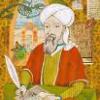-
Content count
6,157 -
Joined
-
Last visited
-
Days Won
3
Everything posted by Dainin
-
Sorry to hear about her passing. She will be missed here.
-
Hi Tech Support, Just thought I'd point out that the search engine for the site doesn't appear to be working correctly. Entering relatively common search terms produces no results or far fewer than should be expected. Examples: Bagua, 5 results Mo Pai: 6 results Zen: 27 results Hopefully someone can look into this. Thank you.
-
In Google, it is possible to do site-specific searches like this: site:www.thedaobums.com (search term) However, Google's crawlers do not reach the PPD section, where a lot of interesting content can be found. This site's search engine did (or still does but just for the past two months). I'm wondering if the mods could experiment with re-setting the search scope further back in time to see if it affects connectivity and speed? If it is negatively impacted, by all means go back to two months. Just a thought. (You may have already tried this, apologies if so) I'd also like to thank the mods/concierges and IT people for all you do!
-
I don't believe that the PPD content is accessible via Google. Why the forced choice? Why not work on restoring both, as it was prior to the slow down?
-
Sorry but I have to disagree about the search engine never working well. For example, last June I used it to analyze my practice log. As you can see at the following link, it would (at that time and until recently) retrieve hundreds or even thousands of results for given search terms. There has definitely been a change since the recent connectivity issues to greatly impair this function, leaving it virtually worthless. To me this has been an important feature of the site and allows visitors to readily locate information on the topic of their choice. I hope tech support doesn't blow this off and continues to investigate the issue. Thank you.



